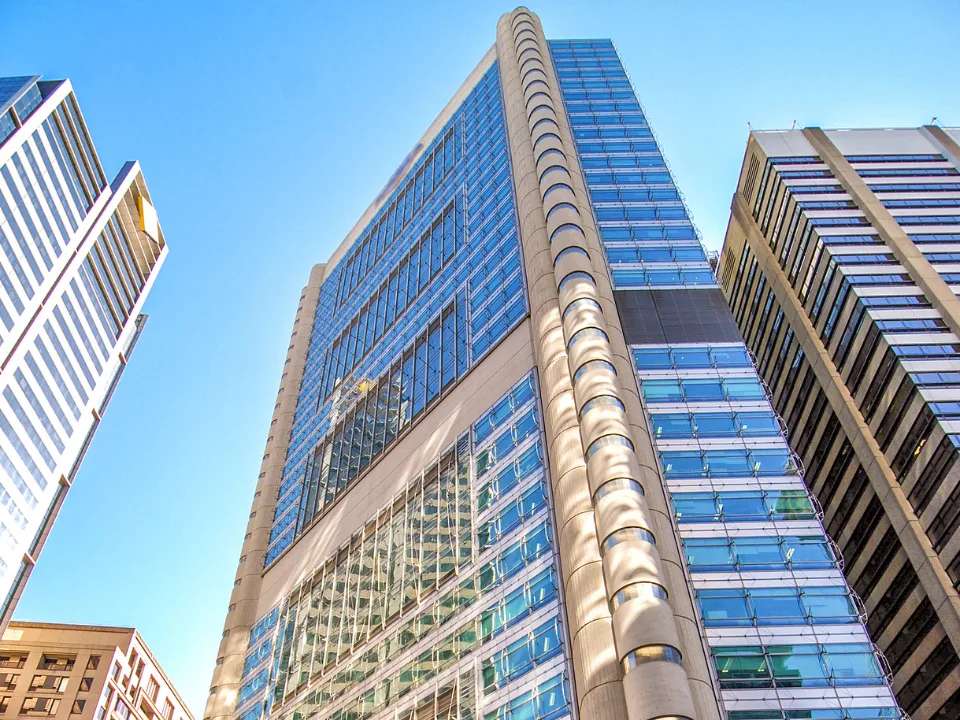- SL Green’s 919 Third Avenue received the largest market value reduction in 2024, saving $2.87M in taxes, as part of broader relief trends favoring commercial landlords.
- Twelve office buildings each secured cuts over $20M, while only one residential building received a comparable reduction — highlighting ongoing disparities in tax relief.
- Attorneys cite understaffing and lack of transparency at the NYC Tax Commission for inconsistent and minimal reductions, particularly impacting rent-stabilized and affordable housing owners.
- Despite rising delinquencies totaling $708.5M, the city still collected over 93% of its $35.34B property tax levy for FY 2024.
Big Breaks for Big Offices
NYC’s 2025–26 assessments gave major cuts to office landlords, per Commercial Observer, leaving residential owners behind.. SL Green’s 919 Third Avenue alone received a $62.69M cut, translating to nearly $3M in property tax savings. Despite the reduction, the building still faces a $24.77M tax bill.
These reductions, however, are based on 2022 income and expense data — well before the city’s economic recovery gained traction, skewing the reflection of current property conditions.
Twelve office properties received reductions exceeding $20M in market value. At NYC’s Class 4 tax rate of 10.762%, that equates to nearly $1M in tax savings per property. Another 30 commercial assets saw cuts of more than $10M.
Residential Owners Left Behind
Just one residential building — Avalon Midtown West at 250 W. 50th Street — made it into the upper tier of reductions, receiving a $16.6M cut. Yet the property still pays $4.6M annually in taxes, even with a 421a exemption and a history of receiving $6.6M in tax refunds since 2019.
Tax certiorari attorneys report that residential apartment owners — particularly those with rent-stabilized units — are facing a tougher battle than ever before. Many argue that the Tax Commission relies on outdated or overly optimistic assumptions about market rents and building occupancy, even when faced with growing vacancy rates and repair backlogs.
Tax Commission Under Fire
The city’s appeals process is increasingly criticized for its lack of transparency and staff capacity. Hearings remain virtual, and attorneys claim many reductions are “token” offers, especially for Manhattan multifamily buildings. Independent appraisals and legal filings are now standard procedure just to make a case.
Out of 57,304 applications for reductions filed in 2024, only 30,815 were reviewed and granted $3.79B in assessment reductions. Of these, the vast majority received cuts below 10% of their assessed value.
Critics argue that hearings are rarely granted when multiple owners control different parts of a building, and many owners never even make it to a formal review due to procedural hurdles or missing paperwork.
Get Smarter about what matters in CRE
Stay ahead of trends in commercial real estate with CRE Daily – the free newsletter delivering everything you need to start your day in just 5-minutes
A Growing Delinquency Problem
Even as the city awarded reductions, property tax delinquencies are mounting. For FY 2023-24, the Tax Commission report noted over $708M in unpaid property taxes. Class 2 (multifamily residential) properties saw a 25% increase in delinquent parcels and a 46% rise in total outstanding amounts.
Delinquency rates are particularly high among walk-ups and small elevator buildings, many of which are struggling to finance repairs due to rent caps and rising costs.
What’s Next
The Tax Commission’s limited jurisdiction means unresolved disputes must head to court by October — a costly and time-consuming process few owners can afford. As most property owners file challenges annually to preserve legal rights, court petitions are expected to spike.
Experts are calling for more resources to be allocated to both the Tax Commission and Department of Finance. Without improvements to the appeals process, the city’s fragmented and inequitable tax system is likely to persist — even as revenue pressures mount.
Why It Matters
While some office landlords continue to secure significant relief, residential property owners — especially those providing affordable housing — face rising burdens with limited recourse. As New York City leans on inflated assessments to fund its budget, calls for reform are growing louder.















